Stoyanova Lab News
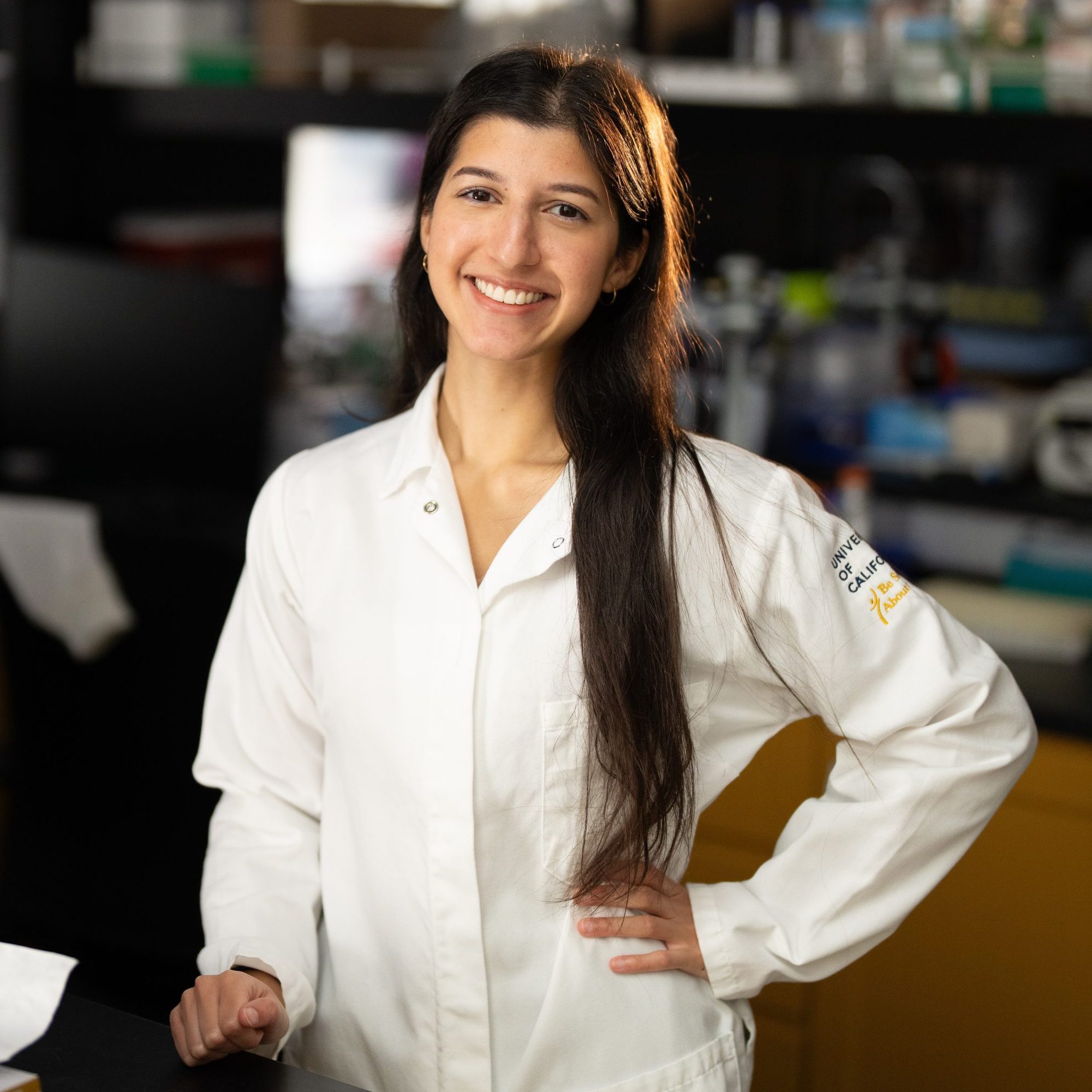
Shruti Sharma, a PhD Candidate in Molecular Biology Interdepartmental Doctoral Program (MBIDP) at UCLA joins the Stoyanova Lab!
Welcome to Dr. Stoyanova’s lab, Shruti!
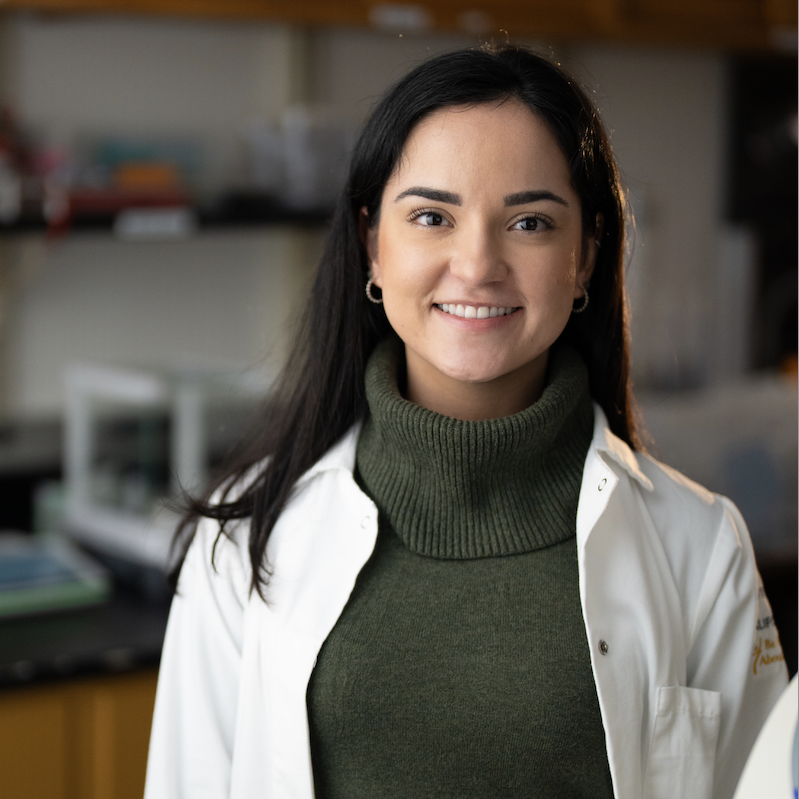
Diana Argiles Castillo, a PhD Candidate in Molecular Biology Interdepartmental Doctoral Program (MBIDP) at UCLA joins the Stoyanova Lab!
Welcome to Dr. Stoyanova’s lab, Diana!
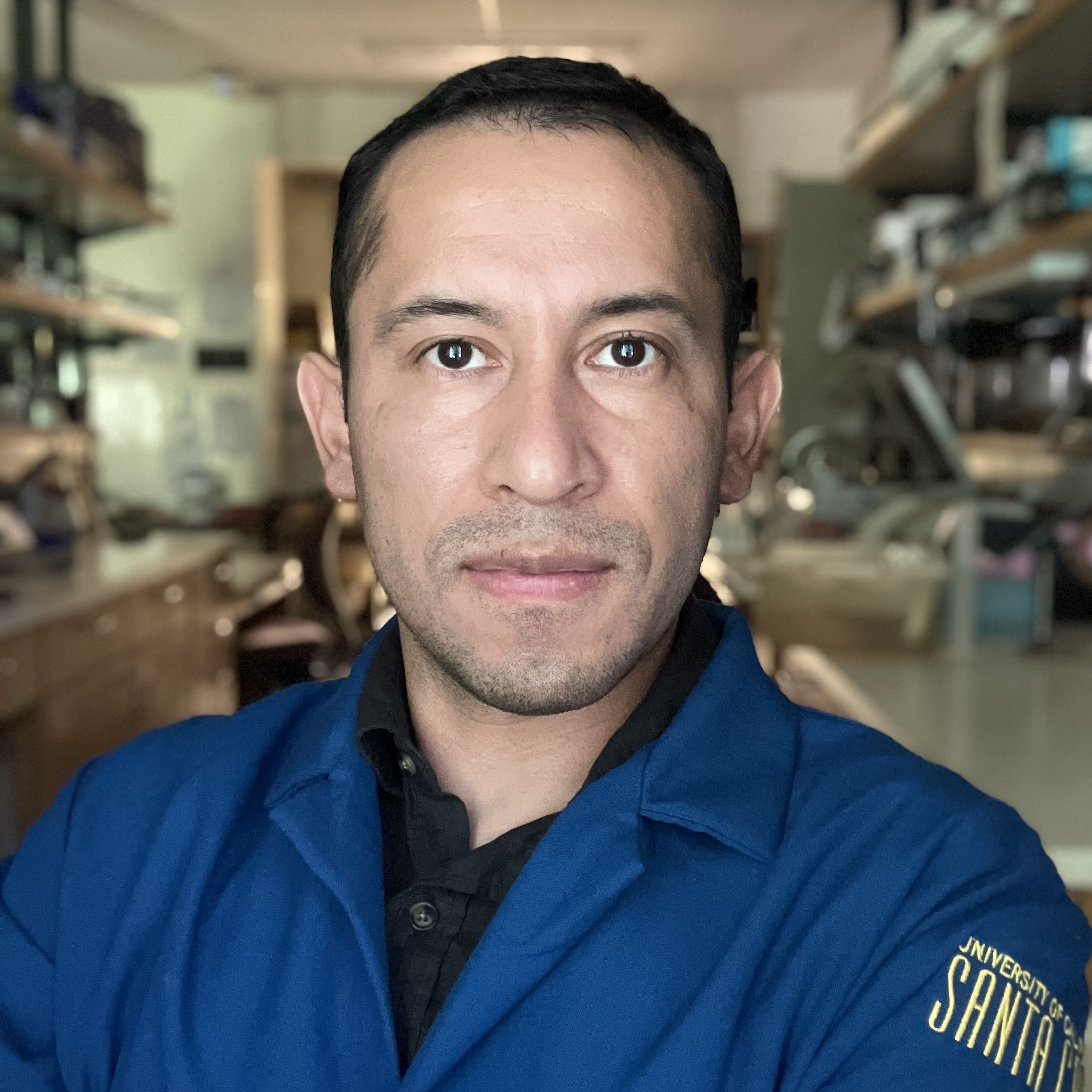
Francisco Solano, a PhD Candidate in Molecular Biology Interdepartmental Doctoral Program (MBIDP) at UCLA joins the Stoyanova Lab!
Welcome to Dr. Stoyanova’s lab, Francisco!
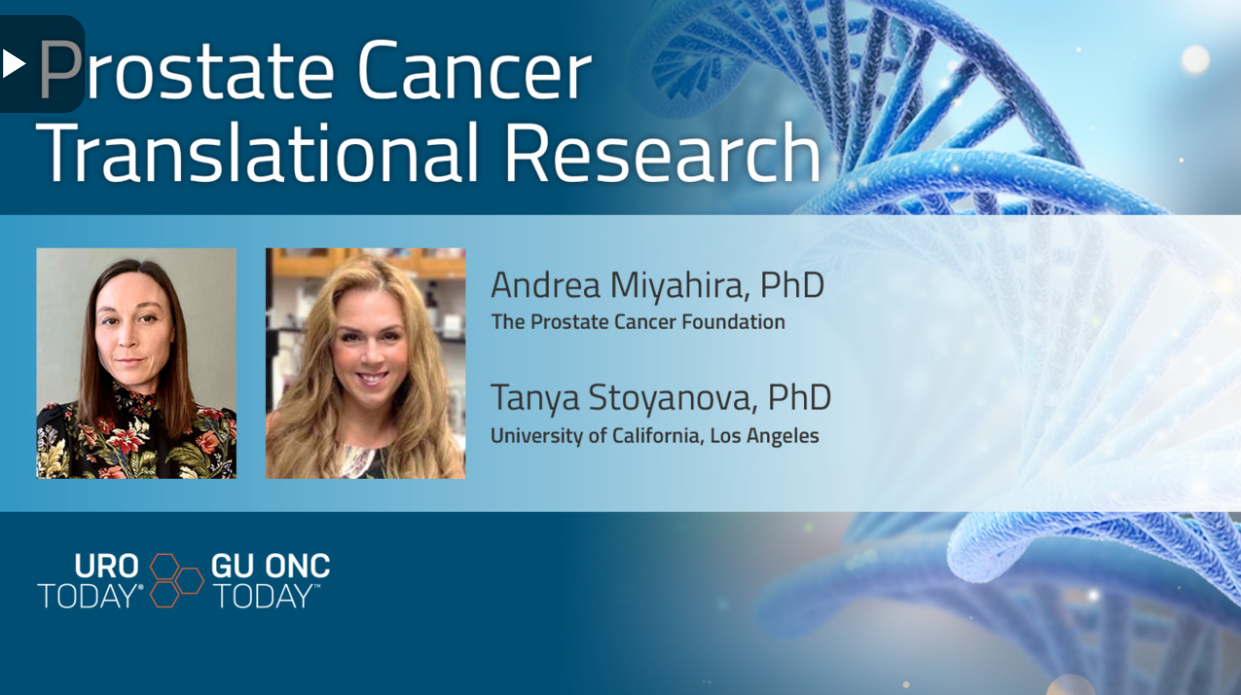
Dr. Tanya Stoyanova discusses new paper “UCHL1 is a potential molecular indicator and therapeutic target for neuroendocrine carcinomas” with Andrea Miyahira of PCF
Andrea Miyahira hosts Tanya Stoyanova to discuss her study, published in Cell Reports Medicine, on UCHL1 as a potential biomarker and therapeutic target for neuroendocrine carcinomas, including neuroendocrine prostate cancer. Watch below or at the link.
Link to Video with Transcript: https://www.urotoday.com/video-lectures/prostate-cancer/video/4083-uchl1-a-potential-biomarker-and-therapeutic-target-for-neuroendocrine-prostate-cancer-tanya-stoyanova.html

Exciting News: Dr. Tanya Stoyanova receives Department of Defense Exploration-Hypothesis Development Award
Dr. Tanya Stoyanova receives Department of Defense Exploration-Hypothesis Development Award
Dr. Tanya Stoyanova, associate professor of molecular and medical pharmacology and urology at the David Geffen School of Medicine at UCLA, was awarded an Exploration-Hypothesis Development Award from the Department of Defense to develop new approaches to detect and treat neuroendocrine prostate cancer, a highly aggressive subtype of prostate cancer known for its poor prognosis and limited therapeutic options.
The award will help support Stoyanova, a member of the UCLA Health Jonsson Comprehensive Cancer Center, and her team in testing blood levels of ubiquitin carboxy-terminal hydrolase L1 — a protein recently discovered by Stoyanova to be a novel promising molecular indicator and target for neuroendocrine prostate cancer — from patients suffering from this cancer. The team will then test the use of the protein as a blood biomarker to diagnose and track how patients respond to therapies, while also testing different new drugs that target the protein to see if they could be effective new treatment options.
“Prostate cancer is the second leading cause of cancer-associated mortality among men in the U.S. and affects active-duty military, veterans and their families,” said Stoyanova, also a member of the Eli and Edythe Broad Center of Regenerative Medicine and Stem Cell Research at UCLA. “Our hope is that successful completion of this study will unveil new minimally invasive blood-based tests to diagnose and monitor responses to therapies for this highly aggressive subtype of prostate cancer, and reveal new treatment strategies for patients suffering from the disease.”
See Full Article at: https://www.uclahealth.org/news/release/dr-tanya-stoyanova-receives-department-defense-exploration
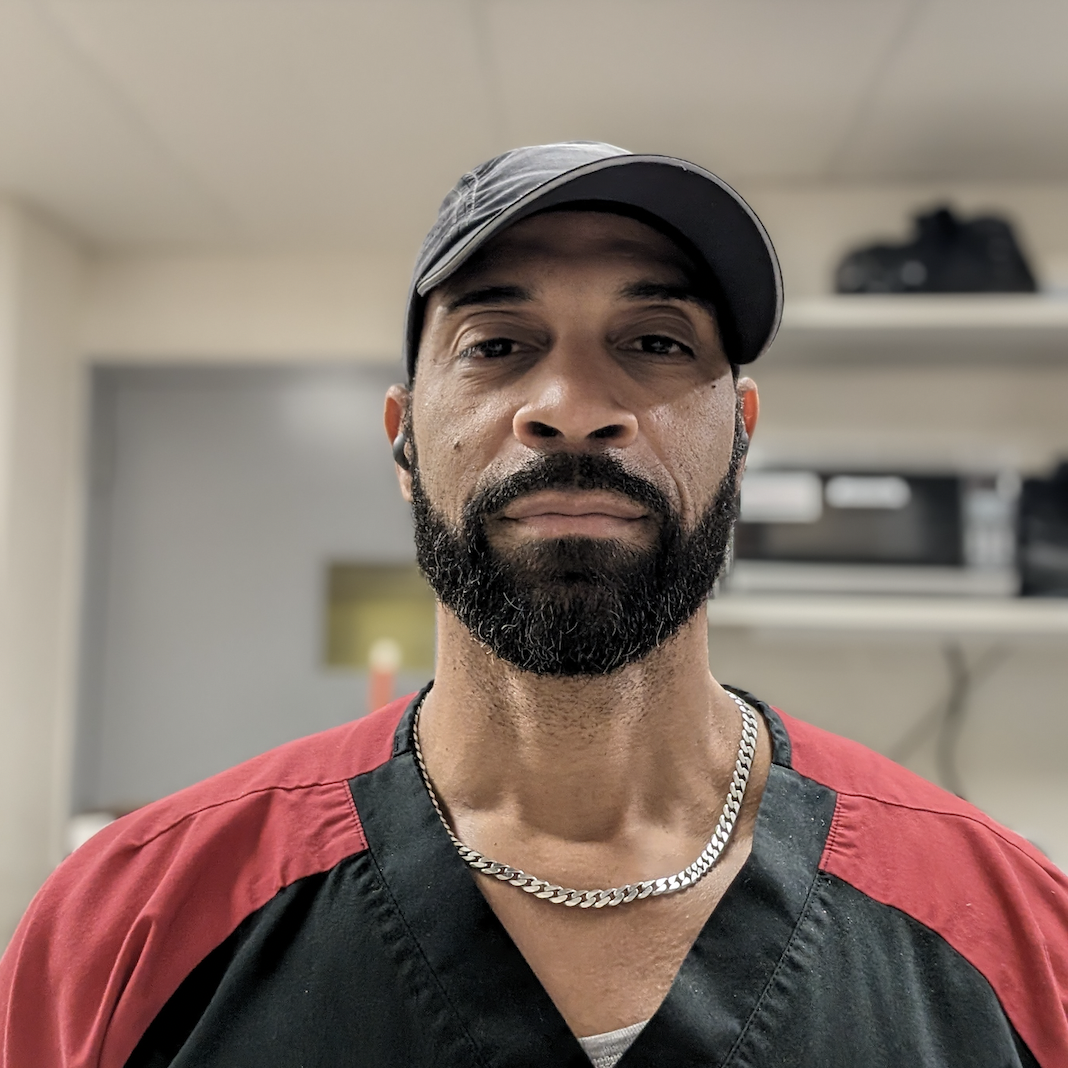
Welcome Donny Gunn, a senior animal technician, to the lab!
Welcome to Stoyanova lab, Donny!
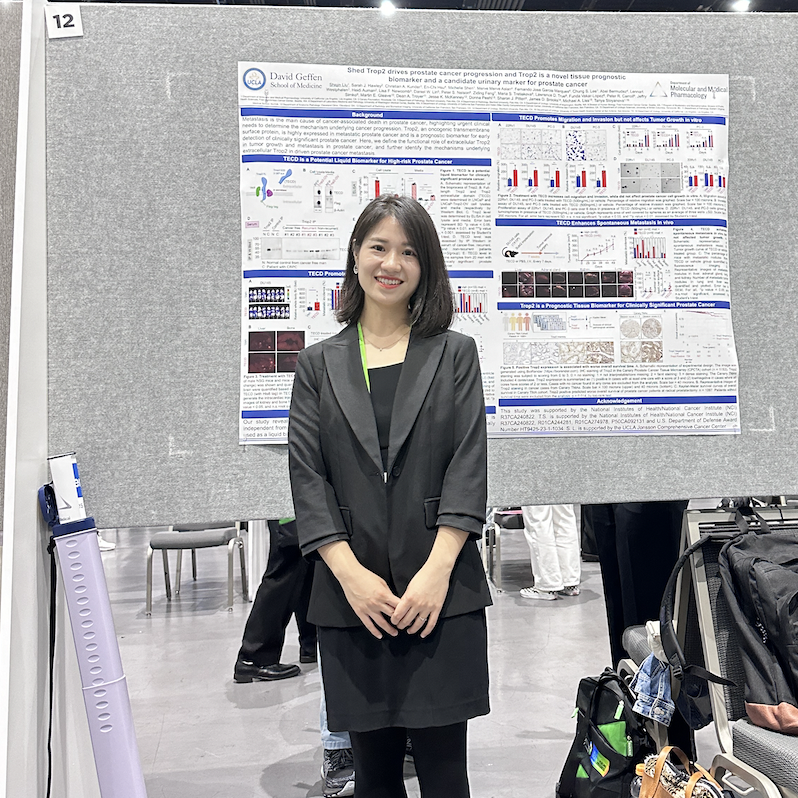
Dr. Shiqin Liu presents her project “Shed Trop2 drives prostate cancer progression and Trop2 is a novel tissue prognostic biomarker and a candidate urinary marker for prostate cancer”
Dr. Shiqin Liu presented her project “Shed Trop2 drives Prostate Cancer Progression and Trop2 is a novel Tissue Prognostic Biomarker and a candidate urinary marker for prostate cancer” at the 2024 AACR.
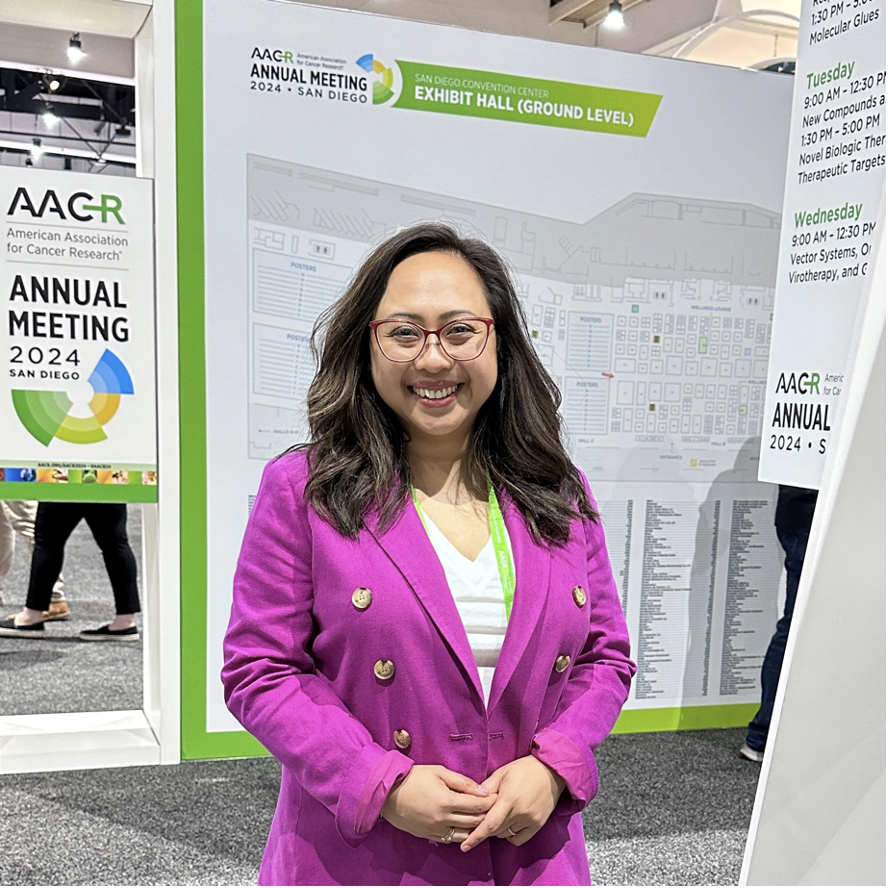
Dr. Alifiani Hartono presents her project “CDC7 is a targetable regulator of advanced prostate cancer”
Dr. Alifiani Hartono presented her project “CDC7 is a targetable regulator of advanced prostate cancer” for her poster session at the 2024 AACR.
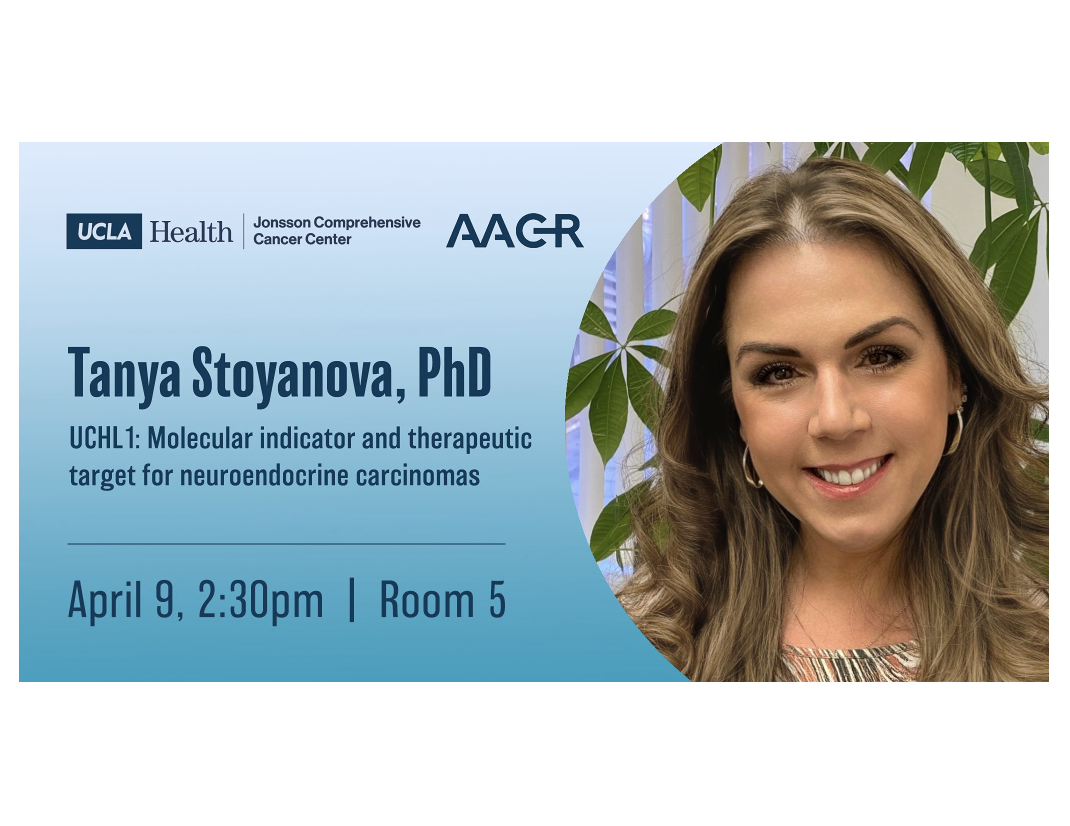
Dr. Tanya Stoyanova gives a talk at 2024 AACR on “UCHL1 as a Molecular indicator and therapeutic target for neuroendocrine carcinomas”
Dr. Stoyanova gave a talk on a project “UCHL1 as a Molecular Indicator and Therapeutic Target for Neuroendocrine Carcinomas” at the 2024 AACR.
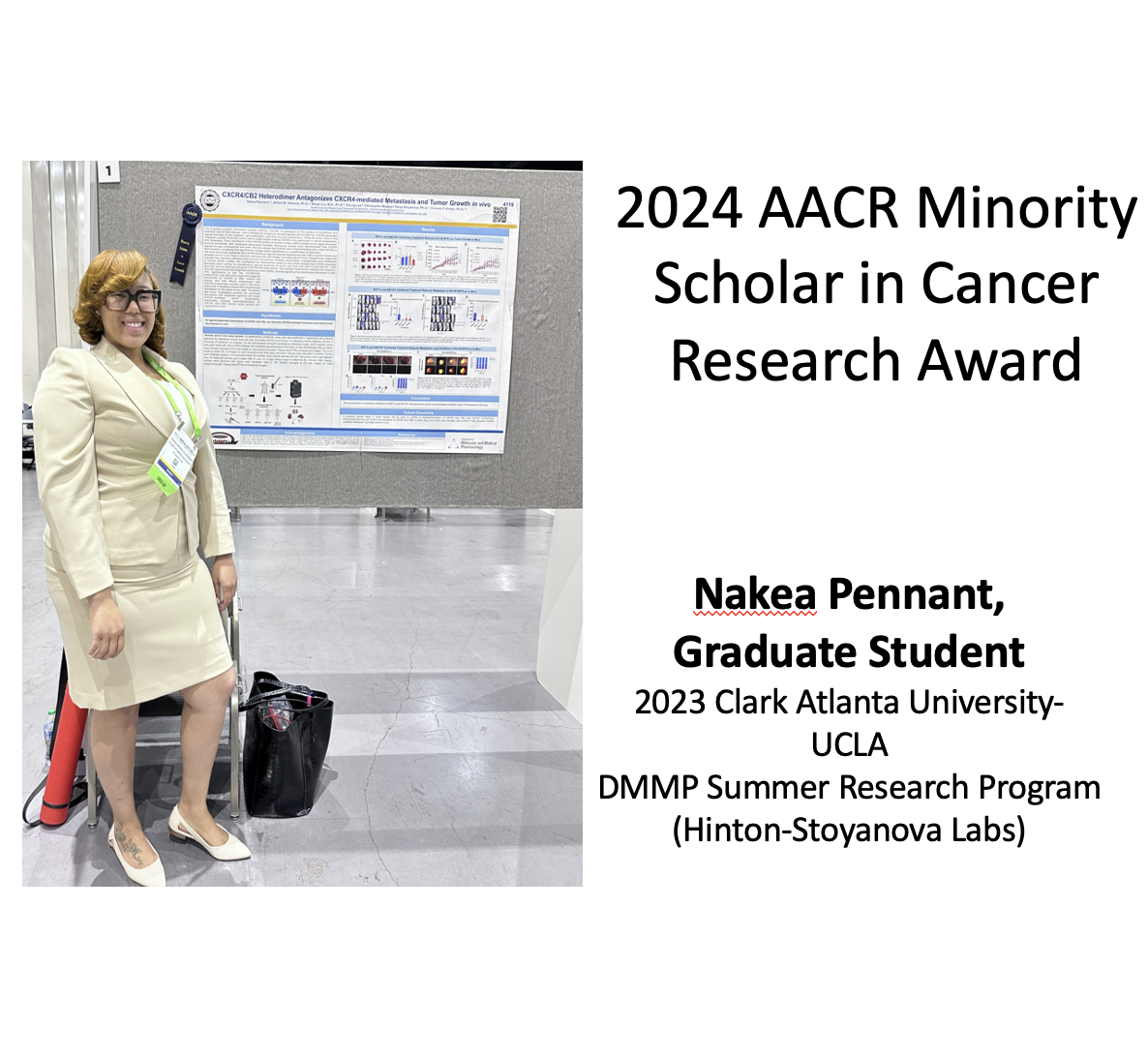
Nakea Pennant receives 2024 AACR Minority Scholar in Cancer Award
Nakea Pennant, a PhD candidate at Clark-Atlanta University and a participant in the 2023 Clark-Atlanta University-UCLA DMMP Summer Research Program, won the 2024 AACR Minority Scholar in Cancer Award with her project “CXCR4/CB2 Antagonizes CXCR4-mediated metastasis in Tumor Growth in-vivo”.
Congratulations, Nakea!
